It’s no secret that protein is an essential nutrient for building muscle mass, supporting healthy weight management, and strengthening the immune system. But protein isn’t just vital for bodybuilders and athletes; it should be a focus nutrient in any nutritious, well-balanced diet. If you want to add more protein to your diet, you may wonder: How much protein is enough? And what are the signs that you are not eating enough protein? Fortunately, we chatted with Destini Moody, RDN, CSSD, LDregistered dietitian and sports nutritionist with Garage Gym Reviews, answers these exact questions and explores 10 telltale signs you’re not eating enough protein.
Before we dive in, let’s have a quick refresher from high school biology class. Protein, along with carbohydrates and fats, is one of the three macronutrients your body needs for energy. When consumed, protein is broken down into amino acids (muscle building blocks) that your body uses for fuel, muscle building, tissue repair, immune function, and supporting various essential functions.
Providing four calories per gram, the recommended dietary allowance (RDA) for protein for a sedentary adult is 0.8 grams per kilogram or 0.36 grams of protein per pound of body weight. According to the United States Department of Agriculture (USDA), this daily amount is approximately 46 grams of protein for women and 56 grams for men.
Now that we’ve established the importance of protein in your diet and how much you should be eating daily, read on to find out 10 sure signs that you’re not eating enough protein, according to Moody. And after that, don’t miss 16 Easy Ways To Increase Your Protein Intake.
Struggling to put on muscle

If you find yourself hitting a plateau when it comes to gaining muscle, it could be a sign of a protein deficiency. Muscle growth requires more than just strength training. Research suggests that 1.6 to 2 grams of protein per kilogram of body weight is best for those trying to build muscle.
“A lot of people who want to put on muscle mass instantly focus on eating as many calories as possible,” says Moody. “However, you’re likely to get frustrated and gain fat without enough protein in those calories. You’ll also notice that your strength is decreasing or not improving if you’re not eating enough protein.”
You get sick often


If you constantly find yourself with the sniffles or feeling under the weather, it could mean that your immune system is functioning at suboptimal levels due to insufficient protein intake.
“Many people don’t know that antibodies are proteins, the molecules in your immune system that fight disease,” Moody explains. “No matter what flu shot you got this year, your immune system may not be able to protect itself against illness without adequate protein.”
You are always tired


“When you’re not eating enough protein, your body has to get its amino acids somewhere. So, it starts breaking down your muscle mass to meet its protein needs. When you lose a lot of muscle, this becomes a cause weakness and you always feel worn down,” says Moody. If you experience fatigue regularly, you may need to reevaluate your protein intake.
You experience mood swings
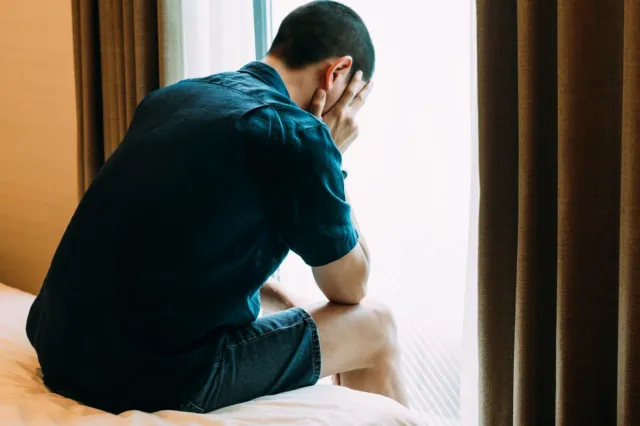

Mood swings may be a subtle indicator of a protein deficiency that affects neurotransmitter production. Neurotransmitters are chemicals that allow communication between brain cells for a balanced mood.
“You can eat too many carbs because of a lack of protein, and those blood sugar crashes can leave you meeting your friends and colleagues over and over again for no apparent reason. low protein intake, your mood may follow.”
Your hair and nails are weak and brittle
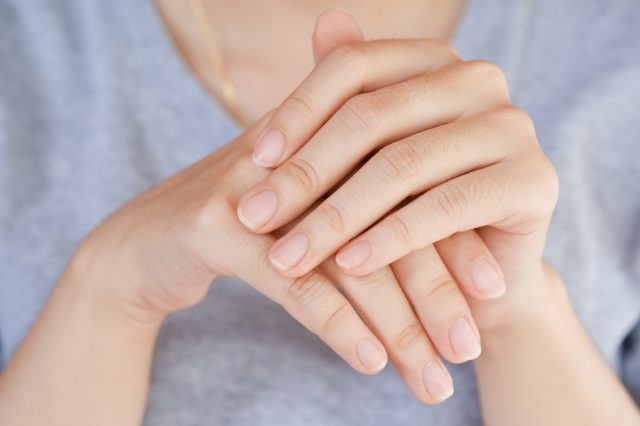

Your hair and nails are made up of keratin, a structural protein that requires amino acids. When you don’t eat enough protein, your body can’t produce enough keratin to properly grow, strengthen and maintain hair and nails. Moody tells us, “Your hair, skin, and nails maintain their integrity with collagen and keratin, which are both proteins. Eating enough dietary protein keeps your hair shiny, nails strong, and soft skin.”
You are always hungry
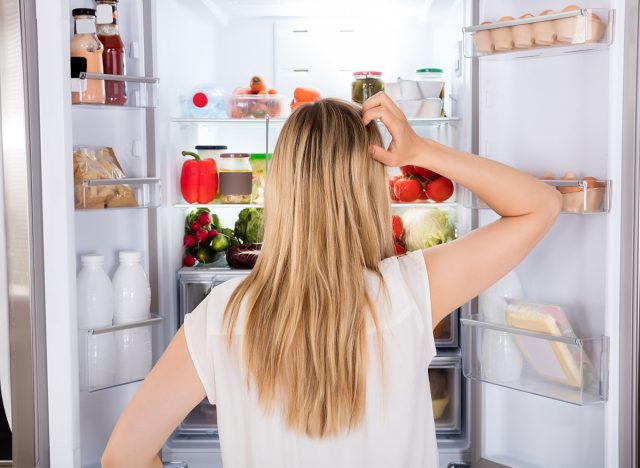

Studies show that protein is the most satiating macronutrient, which means it keeps you feeling fuller longer and helps reduce cravings. “Incorporating protein into most of your meals and snacks is a great strategy to feel satiated throughout the day,” says Moody. “Try eating protein, fats, and carbs together for a full meal or snack.”
You are anemic
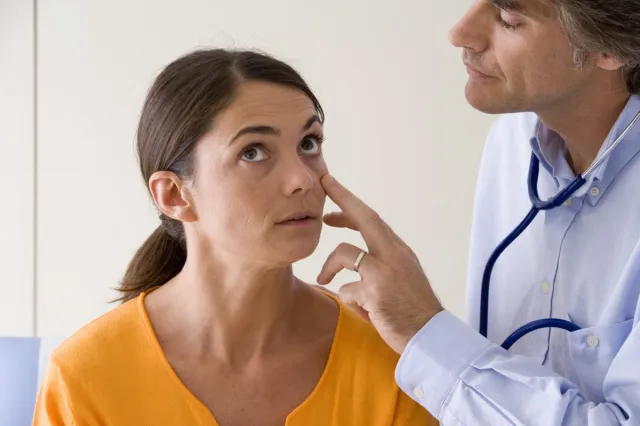

Although it is often related to iron, anemia can also result from not getting enough protein in your diet. According to the NIH, hemoglobin, critical for oxygen transport, depends on protein for synthesis. “There are many types of iron deficiency, but hypoproteinemia is a condition where a person has very low levels of protein in the blood,” explains Moody. “Eating protein-rich foods on a consistent daily basis can help with iron deficiency. If you’re not sure what type of iron deficiency you have, it’s essential to get more blood work done and consult a registered dietitian or doctor. “
you are losing muscle mass


Although losing muscle mass is a natural aging process, it can also indicate inadequate protein intake. Regular strength training requires a steady protein intake every day to gain muscle. Research suggests that the best way to build and maintain muscle mass is to eat 25 to 30 grams of quality protein evenly throughout the day.
Moody says, “Eating enough dietary protein can help maintain muscle status and prevent muscle wasting or loss. Regardless of someone’s goals, maintaining muscle mass should be a priority for health and everyone’s well-being.”
you struggle to lose weight
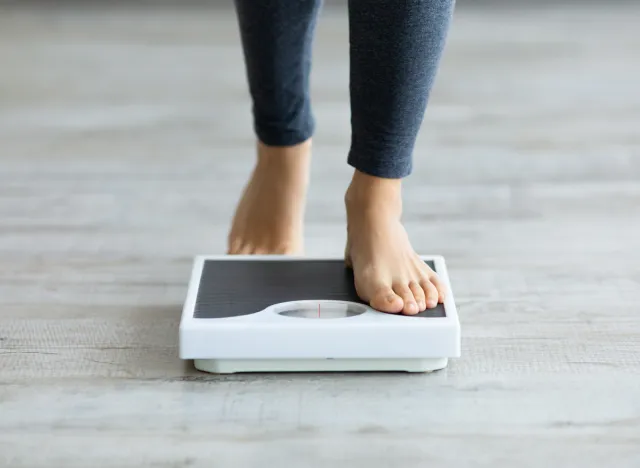

If the scale refuses to budge, it could be insufficient protein that is sabotaging your weight loss efforts. According to Harvard Medical School, protein has a high thermic effect, meaning it requires more calories to burn during digestion than carbohydrates or fats. “When some people don’t eat enough protein, they may feel hungry, or less satisfied, which leads them to eat other high-calorie items that can lead to weight gain with time,” says Moody.
You have weak bones
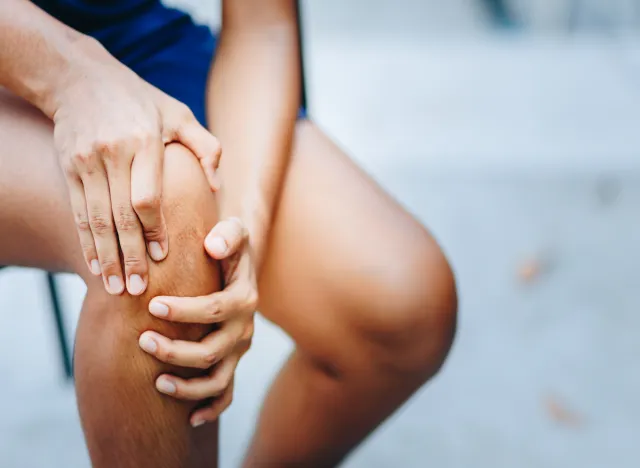

“Protein is important not only for your muscles, but for your bone health as well,” says Moody. “Regular strength training, combined with adequate protein intake each day, will have a positive effect on bone status.” According to the American Society for Nutrition, various studies have shown that higher protein intakes can improve bone density and reduce the risk of fracture, regardless of protein source.
